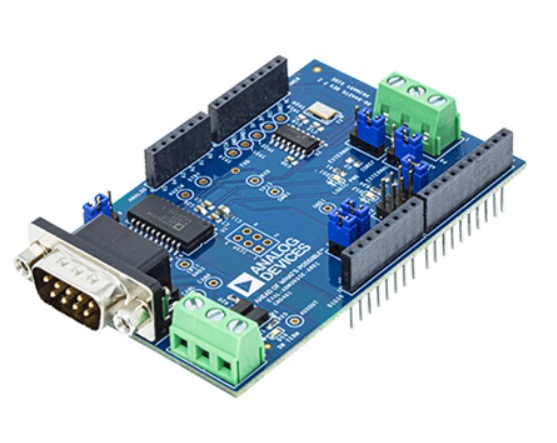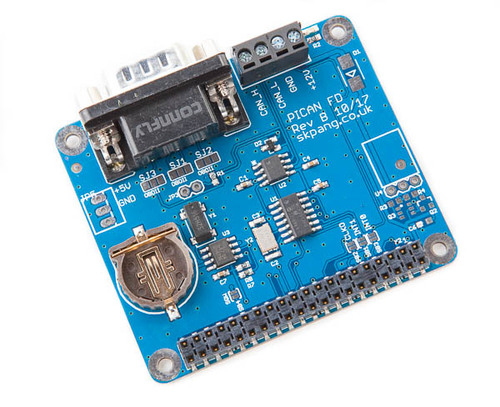Blog
Recent Posts
Arduino Uno Compatible Isolated CAN FD (Flexible Data Rate) Shield
Posted by on
The EVAL-ADM3055E-ARDZ from Analog Devices is an Arduino Uno compatible Shield for an isolated Controller Area Network (CAN Bus) with a flexible data rate (CAN FD) communications port. The circuit interfaces to the local development platform via Serial Peripheral Interface (SPI), providing a secure method to attach field bus communication to new and existing designs.
The EVAL-ADM3055E-ARDZ shield allows both the higher bandwidth CAN FD data rates (up to 8Mbps) required by modern multi-node CAN FD networks and the rugged electromagnetic compatibility (EMC) performance demanded by industrial environments.
The circuit utilizes the integrated auxiliary isolated digital channel of the ADM3055E transceiver for the runtime configuration of the CAN Bus termination. The switchable termination circuitry connects a 120 Ohm split termination with a common-mode filtering capacitor between the CAN FD bus lines. Switchable termination provides on-the-fly software configuration of termination locations when the CAN FD Bus network configuration changes. A software can trace the position of termination resistors in the network.
The ADM3055E CAN FD transceiver reinforces signal and power isolation between the node and the CAN FD network. The electrical connection to the CAN FD bus can be accomplished either by the screw terminal or the CAN Bus DSUB port. Since the ADM3055E transceiver comes with an integrated isolated DC/DC converter, it does not need external power to be connected to the CAN FD bus. The programming examples focus on CAN FD networks; however, CAN FD is not backward compatible with classical CAN Bus networks.
PiCAN CAN Bus FD Board With Real-Time Clock For Raspberry Pi
The PiCAN FD board provides CAN Bus FD (Flexible Data Rate) capability for the Raspberry Pi 3. It uses the Microchip MCP2517FD CAN FD controller with MCP2562FD CAN transceiver. Developed by Bosch, CAN with Flexible Data-Rate (CAN FD) is an extension to the original CAN protocol as specified in ISO 11898-1 that responds to increased bandwidth requirements in automotive networks.
Connections are made via DB9 or 4 way screw terminal. The board is also available with a 5v 1A SMPS that can power the RPi as well via the screw terminal or DB9 connector.
A real time clock with battery back up (battery not included) is also on the board.
There is an easy-to-install SocketCAN driver, and programming can be done in C or Python.
Beginner-Friendly Collection Of Electronics Projects Using The Low-Cost Arduino Board
The Arduino Project Handbook is a beginner-friendly collection of electronics projects using the low-cost Arduino board. With only a handful of components, an Arduino, and a computer, you will learn to build and program everything from light shows to arcade games to an ultrasonic security system.First, you will get set up with an introduction to the Arduino [...]
CAN Bus Prototyping With Arduino Uno - Arduino CAN Shields
This post is part of a series about Controller Area Network (CAN Bus) Prototyping With the Arduino Uno. Since Controller Area Network (CAN) is predominantly targeted at industrial solutions (versus the vastly more popular USB for non-industrial use such as home and lab), there aren’t too many choices available in the market. Through some research (i.e. browsing) I found two very similar [...]
 Loading... Please wait...
Loading... Please wait...


